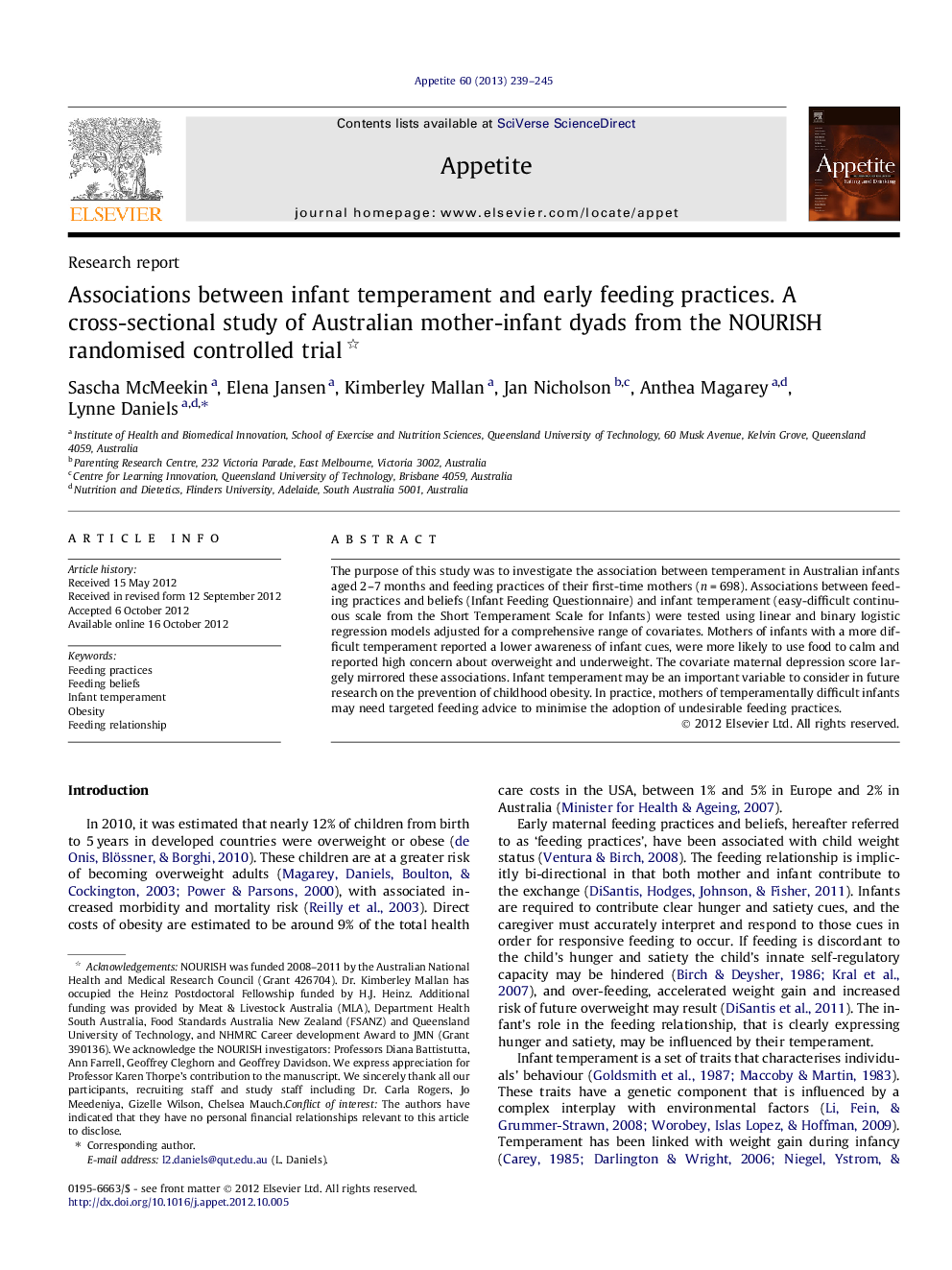| Article ID | Journal | Published Year | Pages | File Type |
|---|---|---|---|---|
| 939788 | Appetite | 2013 | 7 Pages |
The purpose of this study was to investigate the association between temperament in Australian infants aged 2–7 months and feeding practices of their first-time mothers (n = 698). Associations between feeding practices and beliefs (Infant Feeding Questionnaire) and infant temperament (easy-difficult continuous scale from the Short Temperament Scale for Infants) were tested using linear and binary logistic regression models adjusted for a comprehensive range of covariates. Mothers of infants with a more difficult temperament reported a lower awareness of infant cues, were more likely to use food to calm and reported high concern about overweight and underweight. The covariate maternal depression score largely mirrored these associations. Infant temperament may be an important variable to consider in future research on the prevention of childhood obesity. In practice, mothers of temperamentally difficult infants may need targeted feeding advice to minimise the adoption of undesirable feeding practices.
► More difficult infant temperament was associated with less awareness of infant cues. ► Mothers of infants with more difficult temperament were more likely to feed to calm. ► More difficult infant temperament associated with more infant weight concern. ► Maternal depression largely mirrored associations of difficult infant temperament. ► Infant temperament is important to consider in future feeding and obesity research.
